Stefan Hegerat's musical CV reads like a roadmap through the most restless corners of contemporary music. The Toronto-based drummer and composer has spent over a decade building a reputation as someone who refuses to stay in one lane, leading experimental noise outfit stef.in, fronting prog-pop trio Parade, and bashing out grooves with punk band Chinese Medicine. His latest project, the second installment of stef.in's Icterus series, captures an artist boiling his influences in a cauldron of classic rock, jazz pedagogy, and years spent in Toronto's vibrant underground scene.
Icterus II, released this spring on Barnyard Records, emerged from five years of personal, political, and pandemic-related turmoil that pushed Hegerat to confront some uncomfortable truths about the world and how he chooses to move through it.
What makes Hegerat particularly compelling as an interview subject is his willingness to discuss the messy realities of being an independent artist in 2025. He's vocal about the challenges facing musicians today. His outspoken resentment of Spotify speaks to an artist willing to put principles before profits, even when it costs him potential listeners. This is clearly an artist who sees creativity and social commentary as inseparable forces.
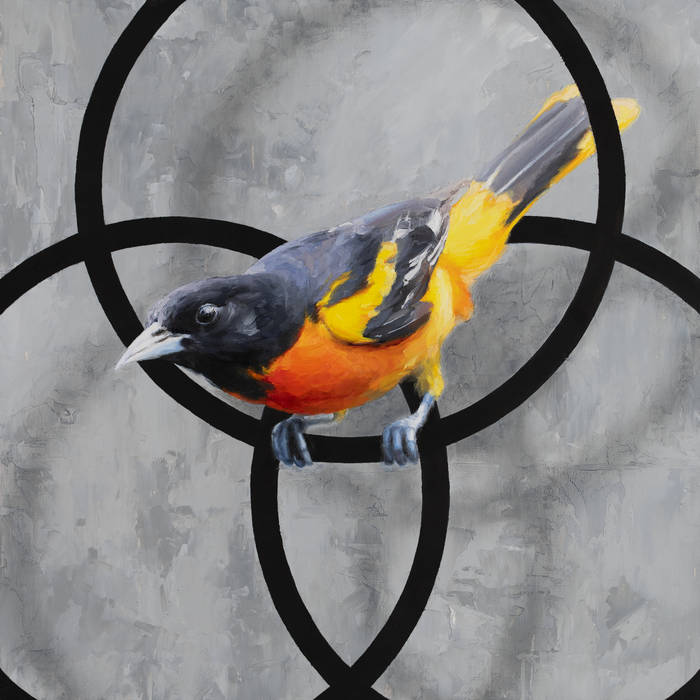
Jumping Off into the Unknown
Lawrence Peryer: This record fuses where you come from musically, earlier in your life, and how your tastes and influences evolved over the years to get you where you are now.
Stefan Hegerat: For sure. This band does feel like a culmination of musical interests. When I was younger in high school or earlier, I listened to a lot of classic rock. I've always been a big John Bonham fan. He's probably still my favorite rock drummer. As I got a little older, I was more into the Mars Volta, Tool, and some heavier progressive stuff. Also, Alexis on Fire and some of those bands in the genre that were blowing up when I was in high school.
Then I went to jazz school, which changed things for me significantly. I guess the positive outlook is that it broadened my horizons about what music can be and how you can interact with composition and traditional song structure more freely. That has had a massive impact on how I write music.
Getting into a very specific niche jazz scene—the jazz scene in Brooklyn—that music has been highly influential for me in writing a lot of this stuff on the record. More specifically, somebody like Dan Weiss—an amazing, monster drummer. He's had a big influence on me. I also studied with Jacob Sacks, who plays in Dan's trio, and I've known him for a long time. So that scene, mixed with classic and progressive rock and jazz, is the big influence for this project.
Lawrence: What is the continuum across your influences? What was the gateway drug record that helped you make the leap out of the rock world and into jazz?
Stefan: I think somebody like Dan Weiss is interesting because I know he studies all genres of music. Rock music, particularly—I've heard him talk about John Bonham as an influence as well. But I think, as far as classic rock being riff-centric, a band like Zeppelin or the Who or some of those stadium styles of that music, there's a willingness to jump off into the unknown and improvise. I think that for me is the through line, the fearlessness of, "Okay, here's this idea and maybe it's a good idea or maybe it's not, but we're going just to see where that takes us and let the music flow."
Most of the music I listen to and appreciate has an element of that—a specific kind of bravery. It's not the only way somebody could write brave, courageous music, but I think that is one way it can be done.
Lawrence: You don't leave your rock influences or all of the idiom behind, right? Many people grow out of it, or as they study in a more formal setting, they lean into a new tradition. Certainly with a twin guitar lineup—I'm curious about your choice of configuration and instrumentation. Can you talk about that at all?
Stefan: For sure. I think part of that is that I'm spoiled living in Toronto. There are so many of my friends who are amazing guitar players. In most of the projects that I've led, it's been particular musicians that I wanted to work with and writing music for those people, rather than thinking that I want to use this instrumentation, or I have this idea, I have to find collaborators. It's more about involving the people who are already in my life.
I know several guitar wizards in Toronto who are unbelievable advisors and players. Of course, I just want to let those people rip. Just give them something to shred on and let it take care of itself. But I think I also have such an affinity for playing grooves. I just love to sit in those pockets and sit in those worlds. I don't have to always be swinging the eighth notes all the time.
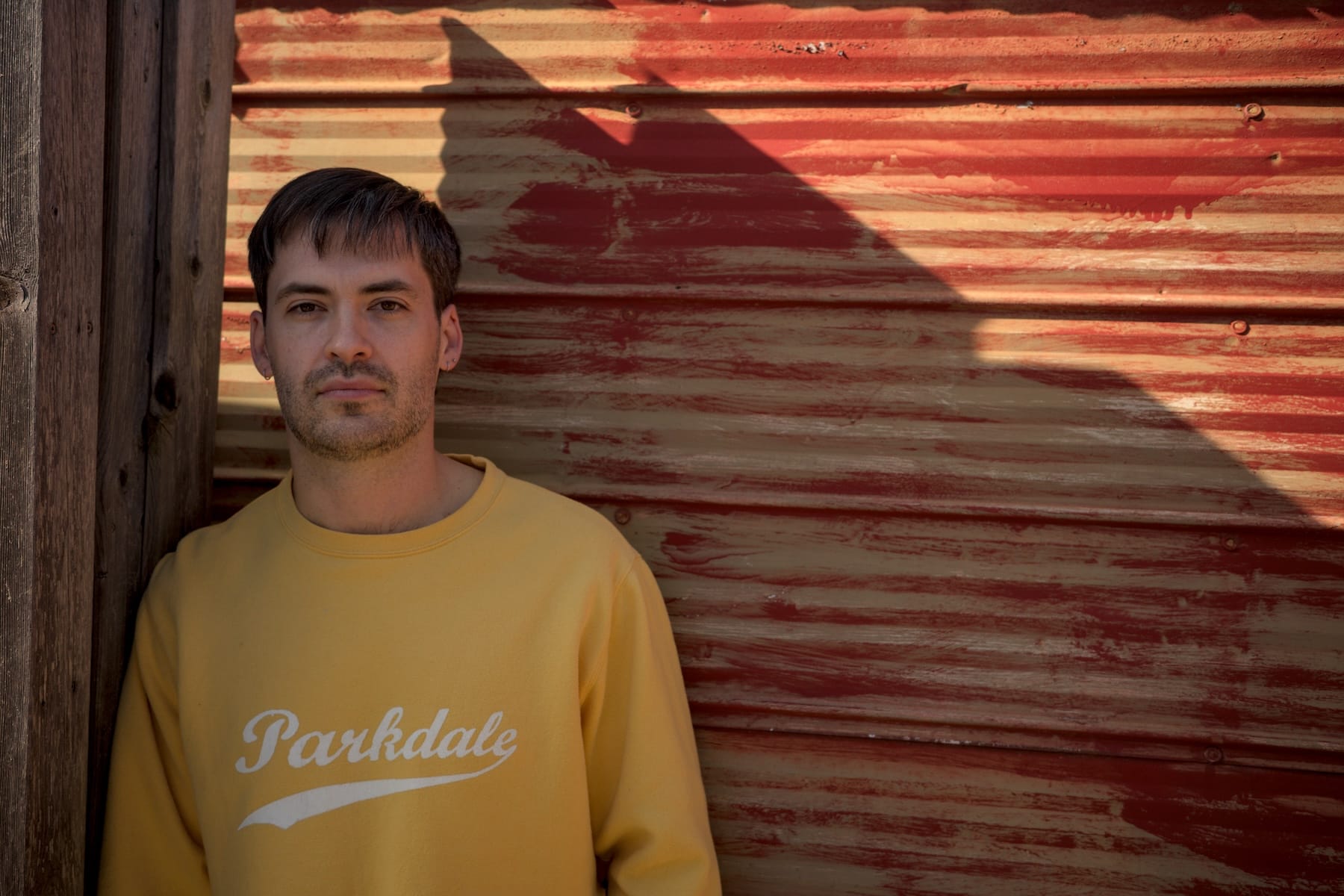
Lawrence: I'm curious about the Toronto scene and what's happening there. Can you tell us a little bit about Toronto as a place for a working creative music musician?
Stefan: It's a difficult time in Toronto. I think that on one hand, there are so many vibrant music communities in Toronto. So many different genres of music are being made. There's amazing world music. There's lots of heavier stuff, punk, metal. There's obviously a lot of jazz happening, and there's a lot of really great improvised avant-garde music, which is my primary interest and community I'm most plugged into.
But I think everyone is just feeling like the city is untenable. It's never been more expensive. Many venues have closed, as everyone in the city is struggling with the cost of living—that problem for artists is multiplied in some cases, right? We don't necessarily have steady access to economic means like people doing other jobs do. So I think it's a precarious time, and many people have left the city for that reason.
But I think there's also a really strong fighting spirit. There's a lot of organizing happening in Toronto, and there are so many amazing musicians and great music still being made. There are a handful of staple venues that have been around for a long time, and there's some stuff that pops up. There are new places, but inevitably, other places are closing. So it feels difficult.
I've been going to all-ages shows and seeing some of these young bands play. There is so much enthusiasm around noise music, punk, and the punk DIY energy in the city. There's a lot of really cool stuff happening. I think it's more my generation, the millennials, who I feel are waving the white flag a little bit.
Lawrence: You talked about guitarists. Tell me a little about Patrick O'Reilly and Robin Gray and how you utilize them as collaborators and interpreters of your compositions.
Stefan: The nice thing about those two is that their palette is so broad. They both have encyclopedic knowledge about sound, pedals, extended technique, and what tones and sounds you can get from the guitar. So already I'm starting from a place where I might write out a simple melody or something, but who knows what those two will do with it. I don't tell them anything about tone, effects, or anything—that’s up to them. I know that they're more equipped to handle that than I am.
They're both also virtuoso players. I'm never concerned about writing something where, oh shit, is this going to be playable on the guitar? Because they're going to figure out a way to do it, even if it's not executed in the way precisely as it is on paper. They're going to do the thing that makes sense.
Birds and Baseball
Lawrence: Tell me about Icterus and the choice of that word.
Stefan: It's a little topical, compared to what I think about in writing this music and where the inspiration for the actual music comes from. It's just a fusion of my passion for wildlife and birds in the outdoors, as well as baseball. Unfortunately, this is a dark time to be one, but I'm a fan of the Baltimore Orioles. They're having a horrendous start. But the oriole is a member of the Icterus family. So it's just weaving those things together.
Lawrence: How does a nice young man from Toronto get into the Baltimore Orioles?
Stefan: It's a good question. I thought their logo was cool when I was a kid. I also thought Cal Ripken was pretty cool.
Lawrence: With instrumental, experimental, or creative music, one can appreciate it on many levels as a listener, but sometimes, the emotionalism isn't obvious. Sometimes it has to reveal itself. I'm curious, especially in your use of time signatures and as you get more abstract and open with the compositions, what are you going for emotionally?
Stefan: You mentioned the time signatures. Generally, those come later. I will write and then figure out the time signatures after the fact. They're irrelevant to a certain degree, especially this music. I'm not trying to think about the beats so much as those anchor riffs and motifs. Those are things that I'm thinking about the most.
But I wrote a lot of this going into the pandemic or during the pandemic, so there's a very dark mood. I was thinking a lot about the larger conflicts we're dealing with—climate crisis, for instance. Socioeconomic warfare that's being waged. So there's a lot of that unease baked into it. Then the pandemic exacerbated all those problems. I thought about systemic collapse and how our governments don’t take care of us.
I guess my default quite often is to veer away from that darkness as much as I can because I think it makes for depressing music if you're just leaning on that entirely. So I'm also trying to consciously put as much joy as I can into the music, and I think that's why on some of the longer compositions… maybe it's super dark at a point, maybe there's this massive amount of chaos, but there also are moments of release or joy or hopefulness.
Lawrence: Did the pandemic require you to change your process as a composer?
Stefan: Only in that I wrote the majority of the record without us ever having played any of that stuff together. We played a lot of the music for the first time in the studio. We hadn't toured any of it. My usual process is to hopefully have some rehearsals or time together, play shows, see how that feels, and then record. But we didn't do that this time.
Lawrence: What did you think of that process? Would you replicate it again, or do you want to default back to road testing it a bit and then record?
Stefan: I think it just makes things different; one isn’t better than the other. We were in Montreal last weekend. We were supposed to play a gig in Kingston the night before, which fell through. So instead we went to our friend's studio in Montreal, and I had written ten or eleven of these little sketches that no one had ever seen before, and we just played them through and improvised on them and did a couple of takes on each. We made a little record that will hopefully be released next year. It's nice to have the luxury of workshopping the stuff and having it battle-tested on the road, but that was a really fun experience.
Lawrence: When you bring a new piece to the ensemble to work up, what are you delivering to them? Do you bring charts? Is it a riff and some direction?
Stefan: It depends. It's a mix of things. For instance, two of the first three tracks on this record, "Three Wars" and "Croon," are more compositional than the rest. Those are three staves for every performer. A lot of it's pre-composed. But all the other ones, like "Dosage" and "Leave Unattended" are either a two-line or one-line melody. The rest is just improvising. It's like blasting off points.
Lawrence: "Dosage" was actually the track that led me to ask that question because it was very unclear to me how orchestrated it was versus just open or unstructured. I love that as a listener, not being able to tell.
Stefan: I can take very little credit for what happened on that because the intro is completely improvised, and we did chop it up in the studio. I'm not sure if the intro is from the same performance as the actual head of the piece.
Lawrence: Can you tell me a little about electronics and drum machines, your relationship to electronic instruments, and where you see that going?
Stefan: In the fall, I bought the Nord Drum 3—it's a drum synth I've been having a lot of fun integrating into my acoustic setup. I'm planning to use that a lot more with this band going forward, because I think sometimes it's tough when you are the only truly acoustic instrument happening, right? Sometimes it's a little tough to blend in that context. I want to blur that line to make the drums just another machine. But we'll see. Maybe I'll try that for the next record, and then decide that's not the play at all.
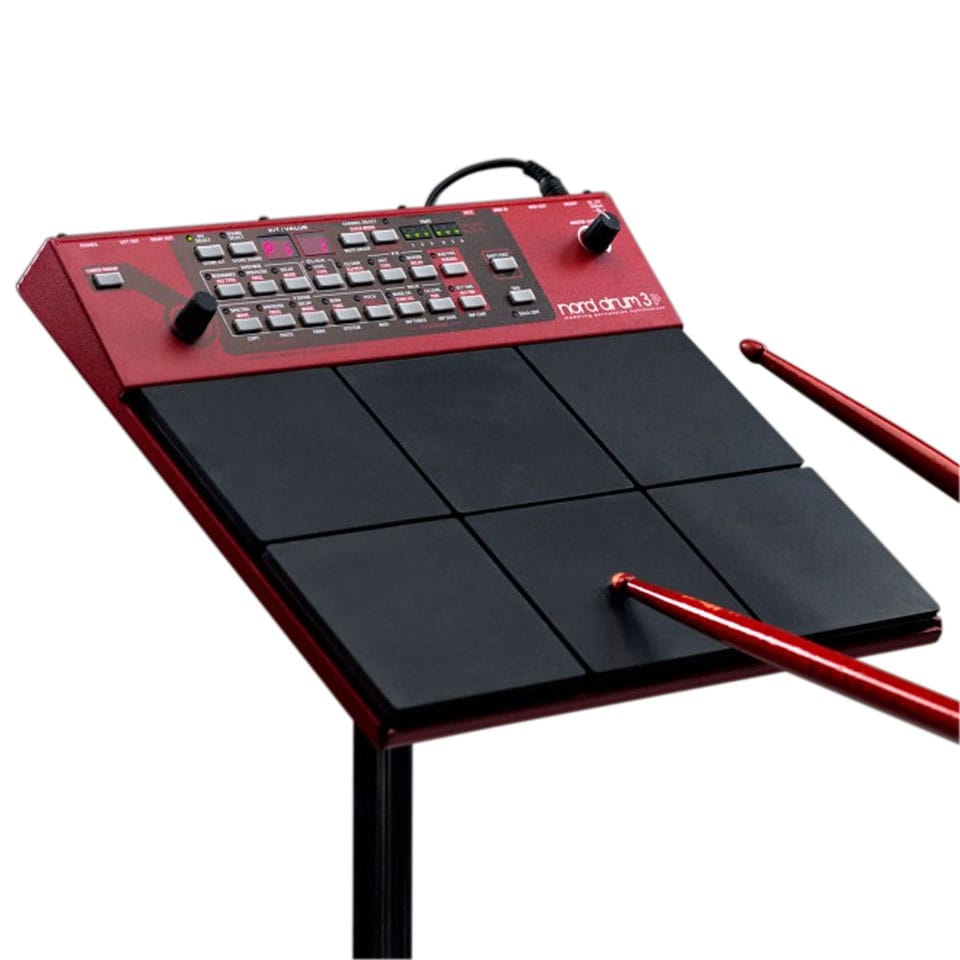
Lawrence: How does that piece of equipment work? Are you triggering non-percussion sounds?
Stefan: It's really broad. So it has six pads, and nothing is being sampled. It's creating all the sounds and has a couple of baseline waves. It’s designed to emulate drums. So you can dial in all sorts of snare, bass drum, and tom sounds. There's one that's designed to mimic a cymbal more closely. Then there are generic templates, like there's a sine wave. There's a saw as well. So you can make it sound like anything you can play. You can quickly get six pads into a scale with one of the settings in there. So it's really diverse and dynamic. It feels like you're playing a real instrument, not just triggering or queuing sounds.
The Context for Chaos
Lawrence: Tell me about the role of bassist Mark Godfrey. I read where you said something to the effect of "he's our root" or "our rock," basically alluding to the foundational nature of his role in the band, but also that he's very musical. He's not just walking lines.
Stefan: Mark's interesting because he also, I think, comes from a similar place as me, a lot of punk rock or pop punk. Mark had a phase where he played electric bass, along to Blink-182 or Sum 41 or some of those bands, right? So he kind of rocks in on the bass. But he also went to jazz school, is an excellent upright player, and has all sorts of improvising capabilities.
But in this band, it's funny—I'm not sure if I ever actually conceived it this way, but it just happens that Mark and I are the foundation, locking in on a lot of these grooves or basslines. As I probably said in that quote, we’re laying a foundation, and then the guitars are doing whatever. But I think it's the thing that kind of tethers it back to the composition, or provides context for how the listener hears whatever nonsense or chaos is being created by the guitars.
Lawrence: Do you have a sense at this point, across these first two records, what type of room this music best comes across in?
Stefan: I like playing the grungier clubs, to be honest. I think it fits better in those spaces than in soft seaters or listening rooms. I think because it needs to be loud, for one. It is nice to have a big, meaty system, and almost a bit too loud. I don't really see it as jazz. I don't really see the audience as being that audience necessarily. I think we're almost more at home playing on bills with noise bands or maybe even certain rock or punk outfits.
Lawrence: You have a diversity of work. You've done collaborations over the last dozen or so years.
Stefan: I'm still doing a lot of different stuff. I lead another project called Parade. It has a similar method. There are vocals and lyrics, and it's more experimental pop, but I'm taking many of the same approaches with that music. I'm playing in a punk band called Chinese Medicine, and we're out on the road a bunch this month, next playing a festival in Calgary, a festival in Montreal. That's going to take up a little bit of time for the next little bit. The punk is fun because I don't have another outlet where I can just be noisy in the same way and play loud grooves for thirty-five minutes at a time. It's a pretty nice thing.
I'm still freelancing, doing everything I can to make ends meet. Also, I am just grateful to make so much diverse music with so many different people. It's a real privilege.
Lawrence: How different is it for you when you’re playing in those different musical contexts? Do you have to be deliberate about not jazzing up the punk and not thrashing out on the jazz side?
Stefan: Definitely. Sometimes people take for granted that jazz musicians aren't necessarily rock or pop musicians, right? Sometimes people just assume if you play jazz, complex music, you can play anything—like rock music's easy, but it's a completely different mindset, right? It's different skills. It's a different methodology. So I need to hone down and choose language carefully when playing in a genre like punk. I don't want to limit myself as to what I can express, but certain things just don't really make sense, or they're too far outside of that genre to get the message of what we're trying to do across. But that's part of the fun with it.
It's nice when things get turned around and messed up because we run into these beautiful accidents. But if I miss going to the chorus of one of these pop or punk songs, everybody hears that, right? So it's different responsibilities, but I find them equally fulfilling. I love just playing songs, to play that music. But I think if I didn't also have the outlet to improvise and play my own music, that might not feel great. But again, I'm just lucky to have so much music-making in my life.
Lawrence: When people talk about their favorite rock drummers, they must be specific, as though you have to know they're not as good as the other drummers. They're just really good for a rock drummer. Maybe that's true, maybe it's not, but I don't hear many people who can pull off what John Bonham, Bill Ward, or Neil Peart can.
Stefan: You're right. I think it's also often forgotten that, especially in the sixties and the seventies, Ringo, Keith Moon, these people were listening to jazz drummers. Those guys grew up listening to Gene Krupa. You can hear that in their playing. I think most musicians probably are listening to all sorts of different music. But sometimes there is a tendency to stay in one zone and not understand that all this stuff connects. There's so much crossover.
Lawrence: I know in my conversations with artists that genre is something people put on them, not that they're necessarily saying, "This is my punk record" or "This is my jazz record. This is my experimental fusion record." It's just music, and everybody needs to file the records on the shelf somewhere, or market it, which has to rely on genre.
Stefan: Capitalism forces us to do that, right? You're uploading your music on DistroKid, and you have to pick from their genre options. So it wants us to funnel and commodify our art in very specific ways, which is unfortunate. If it helps somebody find your music because they are looking for what it sounds like, that could be a benefit. But I do think it's limiting.
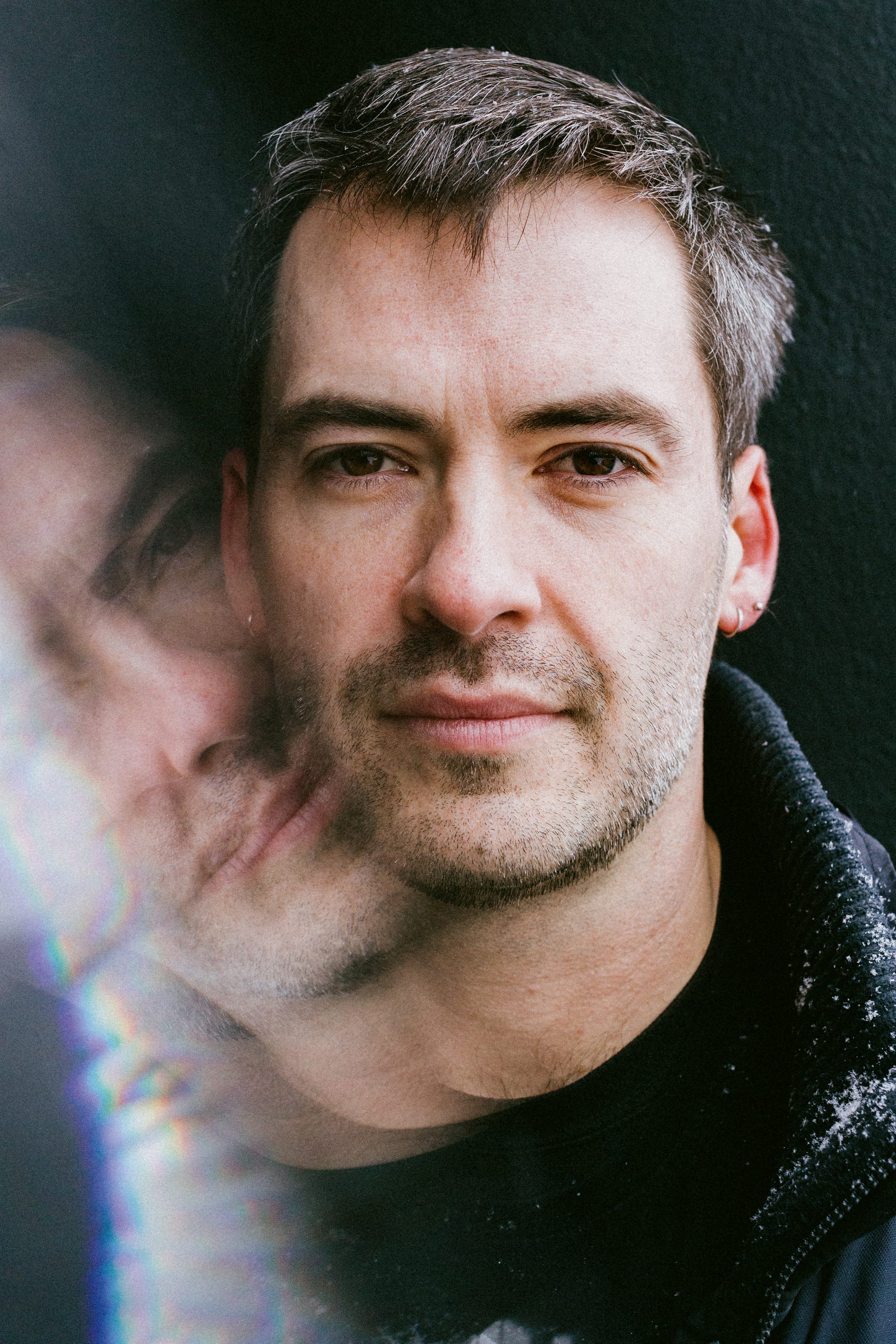
Lawrence: Do you use streaming services?
Stefan: I did for a handful of years. I've ended my relationship with Spotify, and I'm not planning to put any of my music on Spotify from now on, partially because of changes they made that I was very conscious of last year. But also, I recently read Liz Pelly's book about the evolution of Spotify, which sealed the deal for me. I don't have any interest in participating in that anymore.
Lawrence: I just had this conversation with someone a week ago. I'm at that point as well. I've got my son, my significant other, and her kid on a family plan. So now, am I going to cut them off? I have to have a fucking conversation with my loved ones about leaving Spotify? It's the most ridiculous modern man problem ever. But I'm with you, and one of the things I was going to say, because I think your comment about the genre signifier, even at the moment of upload, is that it should have been something the algorithm saved us from. That's a good use of the algorithm. I don't need to say what the genre is. I just want you to give me interesting new stuff based on what I listen to. When a friend comes over and says, "Oh, what are you listening to lately?”—they want to know what's good, period. I wish we could break free of those classifications, and I guess the only way we can do it is amongst ourselves.
Stefan: I think you're right. Bandcamp's an alternative to streaming, but again, it's also hyper-entrenched in genre, but there are a couple of cool alternatives. I think Nina Protocol is a bit more open as far as that's concerned. I've been interested in this new platform called Subvert, which is a music co-op. I'm hopeful it can break down some of the walls around how we think about these things, hopefully leading us to a more sustainable alternative.
Streaming is a fantastic service for the listener, right? It's amazing to look up any song you want to listen to and hear it instantly, but it comes at such an enormous cost. It’s getting worse and worse, harder and harder for working-class musicians to make any money whatsoever on those streaming platforms.
Lawrence: It's borderline magical for a user. It's unthinkable, especially if you were alive before it was available. It's kind of shocking that it exists.
Stefan: It's true. It's the same thing I feel about Amazon, right? What an amazing service, if only we were all extracting the real benefits.
Lawrence: It reminds me of another discussion I had recently, which I said to somebody, "Imagine if Elon Musk was a good guy." The civilization-altering force for good that he could just decide to be.
Stefan: That becomes harder and harder to imagine with every passing moment, doesn't it?
Visit Stefan Hegerat at stefanhegerat.com and follow him on Instagram, TikTok, and YouTube. You can purchase stef.in's Icterus II on Bandcamp or Qobuz and listen on your streaming platform of choice.
Check out more like this:
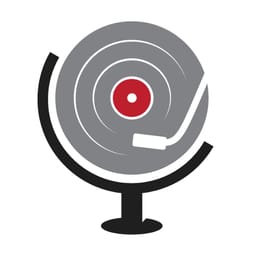 The TonearmMichael Centrone
The TonearmMichael Centrone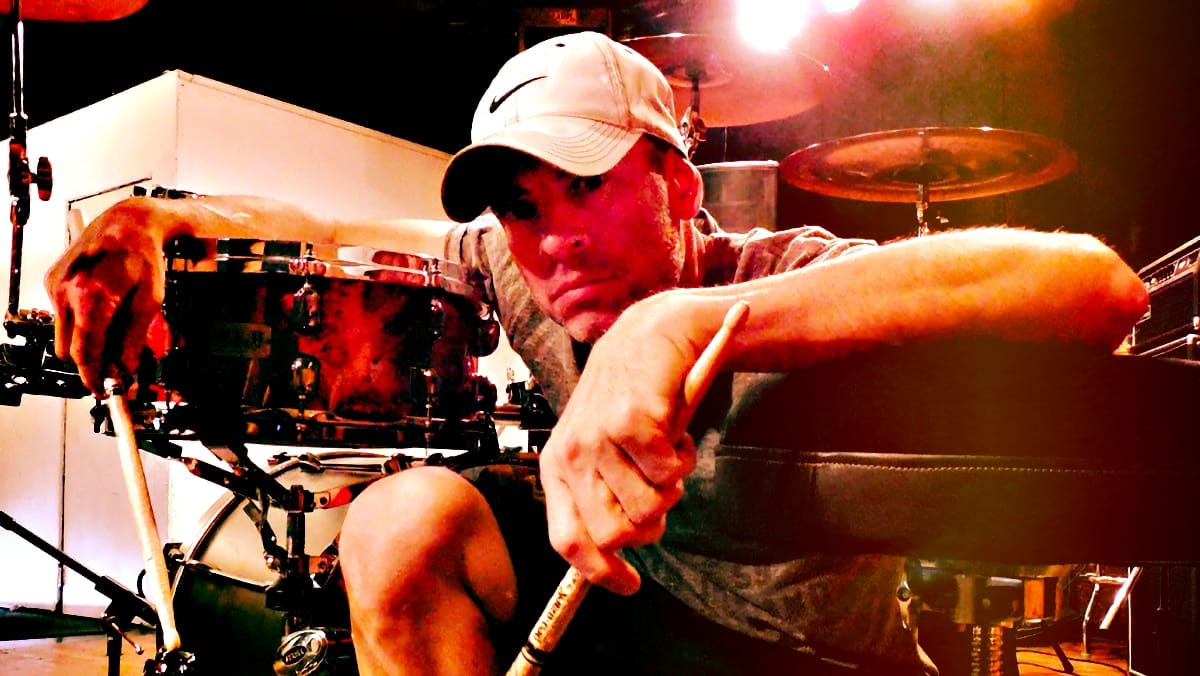
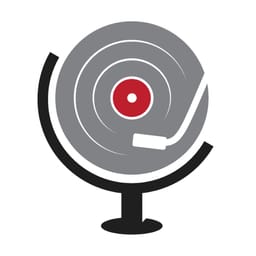 The TonearmLawrence Peryer
The TonearmLawrence Peryer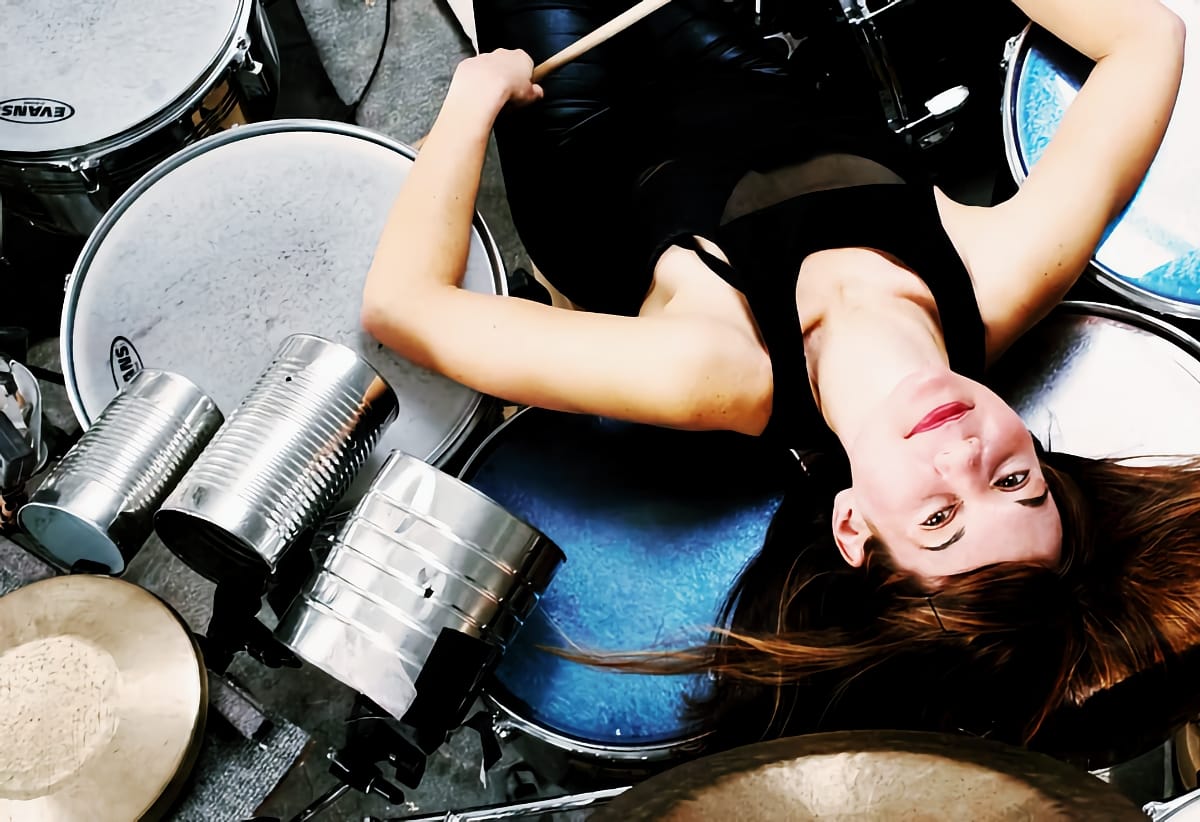


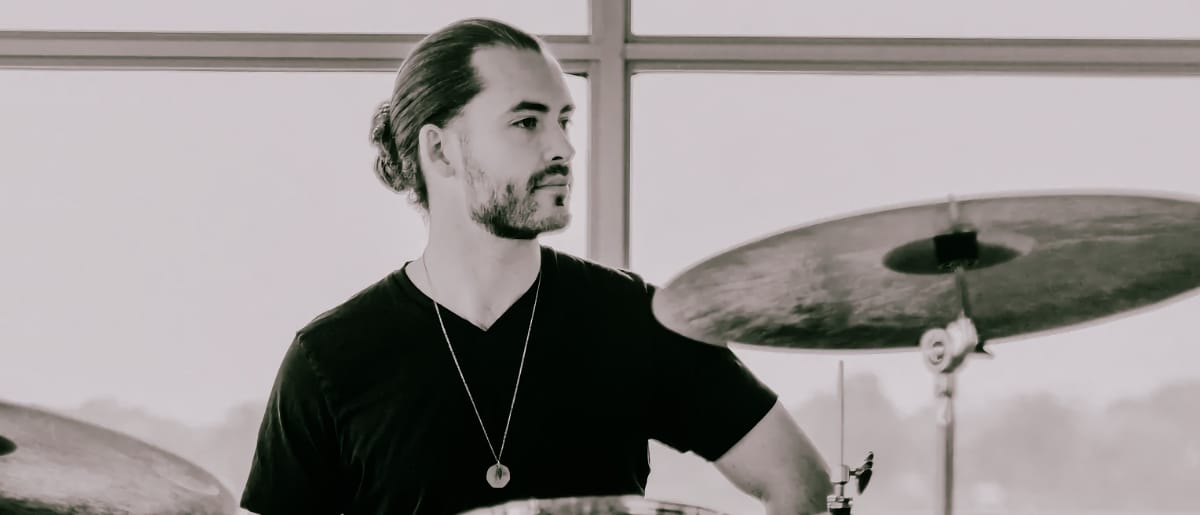

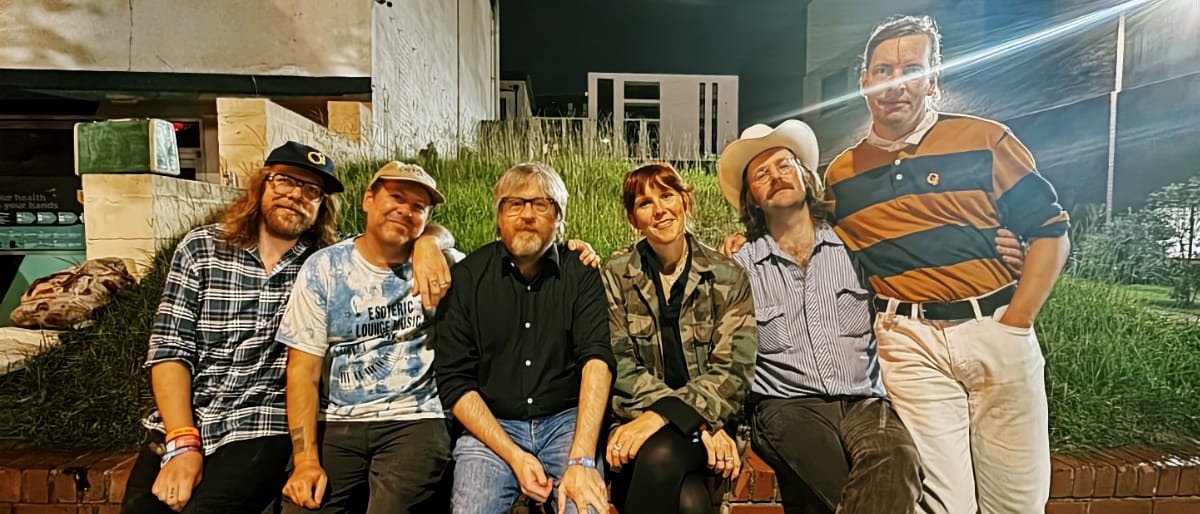
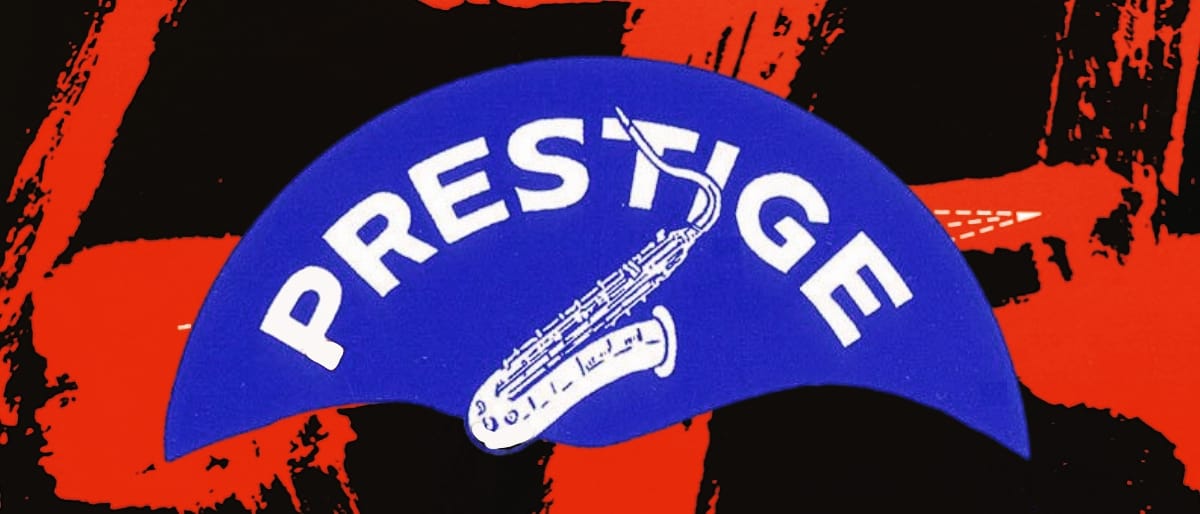
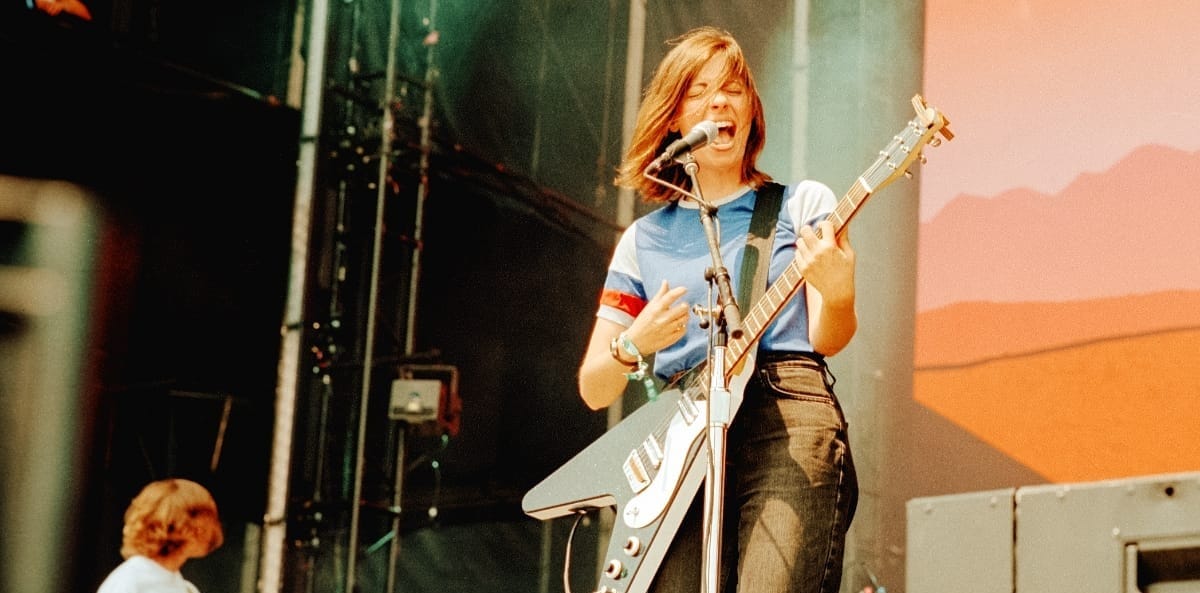
Comments